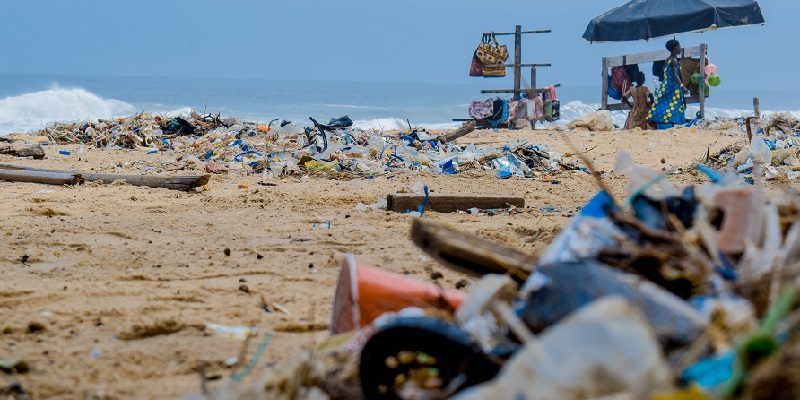Stakeholders Call for Eco-Friendly Plastic Waste Disposal

A stakeholder workshop to discuss the baseline and potential strategies for improving plastic waste management was conducted on 11th March 2019 in Hyderabad.
ICLEI South Asia is providing technical assistance to the Greater Hyderabad Municipal Corporation (GHMC) to assess the baseline and prepare a plastic waste management strategy. This is in partnership with IGES – CCET (the Institute for Global Environmental Strategies Centre Collaborating with United Nations Environment on Environmental Technologies).
The preliminary findings of the baseline municipal solid waste generation assessment were discussed at the workshop. The quantum and characterisation of various plastic fractions in waste from different generators were the basis of the discussions on potential plastic waste reduction and recycling strategies.
During the workshop, Shruti Ojha (IAS), Additional Commissioner, GHMC, said that while the use of plastics could not be stopped, the focus could be on phasing out single-use plastics and managing other plastic waste in a responsible and environmentally sound manner.
Ms. Ojha encouraged the workshop’s participants to identify appropriate substitutes for single- use plastics and to discuss the feasibility and viability of innovative technologies for improving plastic waste recycling. She said a plastic waste management strategy would be robust only if it was developed in consultation with the plastic industry. It should also identify appropriate messages in order to change people’s behaviour patterns, without which such a strategy cannot be implemented.
Dr. Kazunobu Onogawa, Director, IGES – CCET, in his special address, said international groups such as the G20, G7 and the European Union were focusing on formulating strategies for phasing out single-use plastics and for tackling plastic waste. He said the development of an implementable action plan – critically needed now — that could be adapted in other parts of the world would be the focus of the project.
Dr. Iyngararasan Mylvakanam, Programme Officer, UNEP-IETC, briefly explained the UN initiative of phasing out single-use plastics. Of the 25 resolutions considered during the United Nations Environment Assembly session in Nairobi in March 2019, four were directly linked to plastic waste management, with two of them being suggested by India and Sri Lanka.
“Instead of imposing a ban, minimising plastic use in a phased manner is a practical and efficient approach,” Dr. Mylvakanam said. For that to be effective, he emphasised the development of regulatory and economic instruments, along with policy measures.
During the discussion, Soumya Chaturvedula, Deputy Director, ICLEI South Asia, stressed the importance of understanding and measuring single-use plastics use and plastic waste generation. While presenting the results of the baseline assessment undertaken in various locations in GHMC and across various generators, she also discussed the relevance of processing technologies vis-à-vis the baseline.
Stakeholder interactions based on a sound understanding of the baseline are effective and lead to the formulation of informed scientific decisions. The ensuing stakeholder discussions were moderated by Shri. Iyngararasan Mylvakanam, Programme Officer, UNEP-IETC.
Dr. Premakumara Jagath Dickella Gamaralalage, Programme Manager, IGES, focused on the three pillars of the circular economy concept: sustainable production; sustainable consumption; and sustainable waste management.
The discussions centred on existing waste management practices, concerns over plastic recycling by micro entrepreneurs in the city, the importance of extended producer responsibility and the effectiveness of existing technology and policy options. The barriers to recycling and processing of plastic waste were also examined.
The representatives from GHMC were the Municipal Commissioner, Additional Commissioner, Zonal Commissioner and the Chief Engineer, besides others from different technical departments. There were also representatives from UNEP, IGES, plastic manufacturing and recycling associations and NGOs, besides partner organisations such as UNEP-IETC and IGES-CCET. They actively participated in the discussions and concurred that identifying material flows within the production and waste management system was critical to developing a holistic plastic waste management plan. While adequate policy and regulatory guidance is required to streamline the plastic recycling industry, training, finance and fiscal incentives are also essential.
The need to identify scalable alternatives to single-use plastics was reiterated in subsequent meetings with the Principal Secretary, Municipal Administration and Urban Development, the Commissioner, GHMC, and Special Chief Secretary, (Energy, Environment, Forests, Science and Technology), Telangana. The necessity of taking the plastic industry into confidence and of focusing on community awareness while developing and implementing a plastic waste management strategy were also emphasised.
The ICLEI South Asia team was encouraged to conduct workshops and community awareness initiatives to this effect, in addition to the pilot initiative planned under the project.